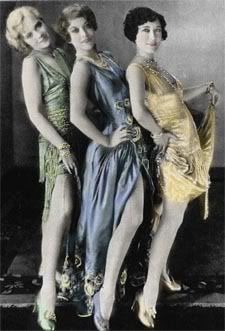The Green Light
The green light on Daisy’s house that Gatsby gazes wistfully at from his own house across the water represents the "unattainable dream." But the green light also represents the hazy future, the future that is forever elusive, as Nick claims in the last page of the novel, "Gatsby believed in the green light, the orgastic future that year by year recedes before us. It eluded us then, but that’s no matter – to-morrow we will run farther, stretch out our arms farther…." The interesting question is, if the green light is the future, how is it so tied up with Daisy and the dreams of the past? The green light is a multi-faceted piece of symbolism in the book. It's most obvious interpretation is that the light is symbolic of Gatsby's longing for Daisy, but that is too simplistic. Daisy is part of it, but the green light means much more. Gatsby has spent his whole life longing for something better. Money, success, acceptance, and Daisy. And no matter how much he has he never feels complete. Even when he has his large house full of interesting people and all of their attention, he still longs for Daisy. He created in his dreams for the future a place for her, and he will not be content to have that gaping hole. So the green light stands for all of Gatsby's longings and wants.
The green light is a multi-faceted piece of symbolism in the book. It's most obvious interpretation is that the light is symbolic of Gatsby's longing for Daisy, but that is too simplistic. Daisy is part of it, but the green light means much more. Gatsby has spent his whole life longing for something better. Money, success, acceptance, and Daisy. And no matter how much he has he never feels complete. Even when he has his large house full of interesting people and all of their attention, he still longs for Daisy. He created in his dreams for the future a place for her, and he will not be content to have that gaping hole. So the green light stands for all of Gatsby's longings and wants. And when Nick talks about the green light at the end of the book he says "It eluded us then, but that's no matter- tomorrow we will run faster, stretch our arms out farther...." . He connects the green light to all people. Everyone has something that they long and search for that is just off in the distance. That is the green light
http://www.shmoop.com/great-gatsby/symbolism-imagery.html
http://www.homework-online.com/tgg/symbolLight.html










.jpg)
























